Symposium 2015: Session Reports
Watch this space for reports on sessions of the 22 Annual International Law and Religion Symposium.
Symposium 2015 First Plenary Session: Religious Freedom and Social Stability
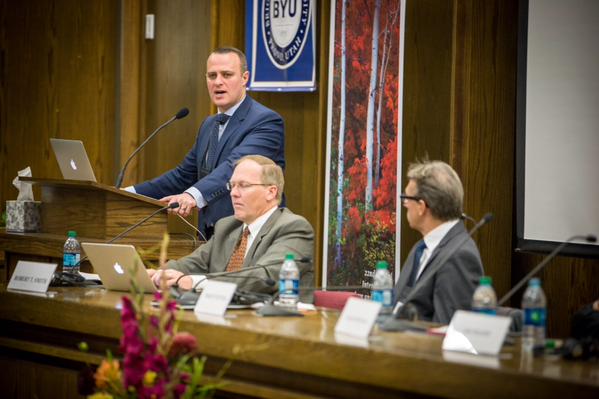
Reported by Blythe Shupe
The first plenary session of the 22nd Annual International Law and Religion Symposium centered around the topic of Religious Freedom and Social Stability. Moderated by Robert Smith, Managing Director of the International Center for Law and Religion Studies, the panel featured Marco Ventura, Professor, University of Siena, Italy; Faizan Mustafa, Vice-Chancellor, NALSAR University of Law, India; and Tim Wilson, Australian Human Rights Commissioner.
Professor Marco Ventura of the University of Siena argued that “human agency is key to an appropriate articulation of religious freedom and social stability.” First, he addressed the redefinition of the interaction of law and religion as demonstrated by the United Nations International…
Symposium 2015 Second Plenary Session: Religion, Rule of Law, and Social Stability
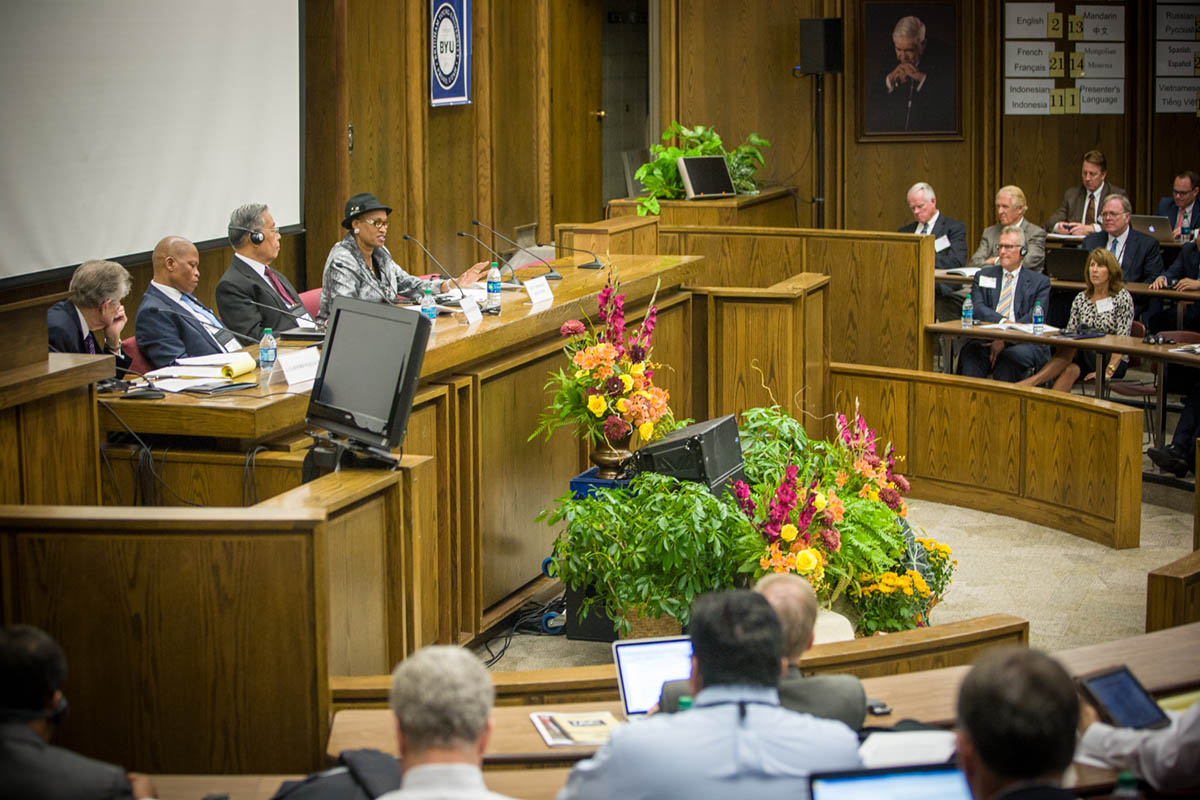
Reported by Annalee Hickman Moser
In the Symposium’s Second Plenary Session, entitled Religion, Rule of Law, and Social Stability, J. Clifford Wallace, Chief Judge Emeritus of the U.S. Court of Appeals for the Ninth Circuit, moderated the question and answer session with three expert judges, Mogoeng Mogoeng, from South Africa, Hilario Davide, Jr., from the Philippines, and Helen Moronkeji Ogunwumiju, from Nigeria. The panel’s purpose was to describe the interaction of the three values—religion, rule of law, and social stability—from the perspective of each judge. The following is a summary of each judge’s perspective, aggregated from the range of questions.
Mogoeng Mogoeng, Chief Justice of the Constitutional Court of South Africa, described that while it has not always been this way, religion has since found its place in the law in South Africa…
Symposium 2015 Third Plenary Session: Religion and Social Tensions
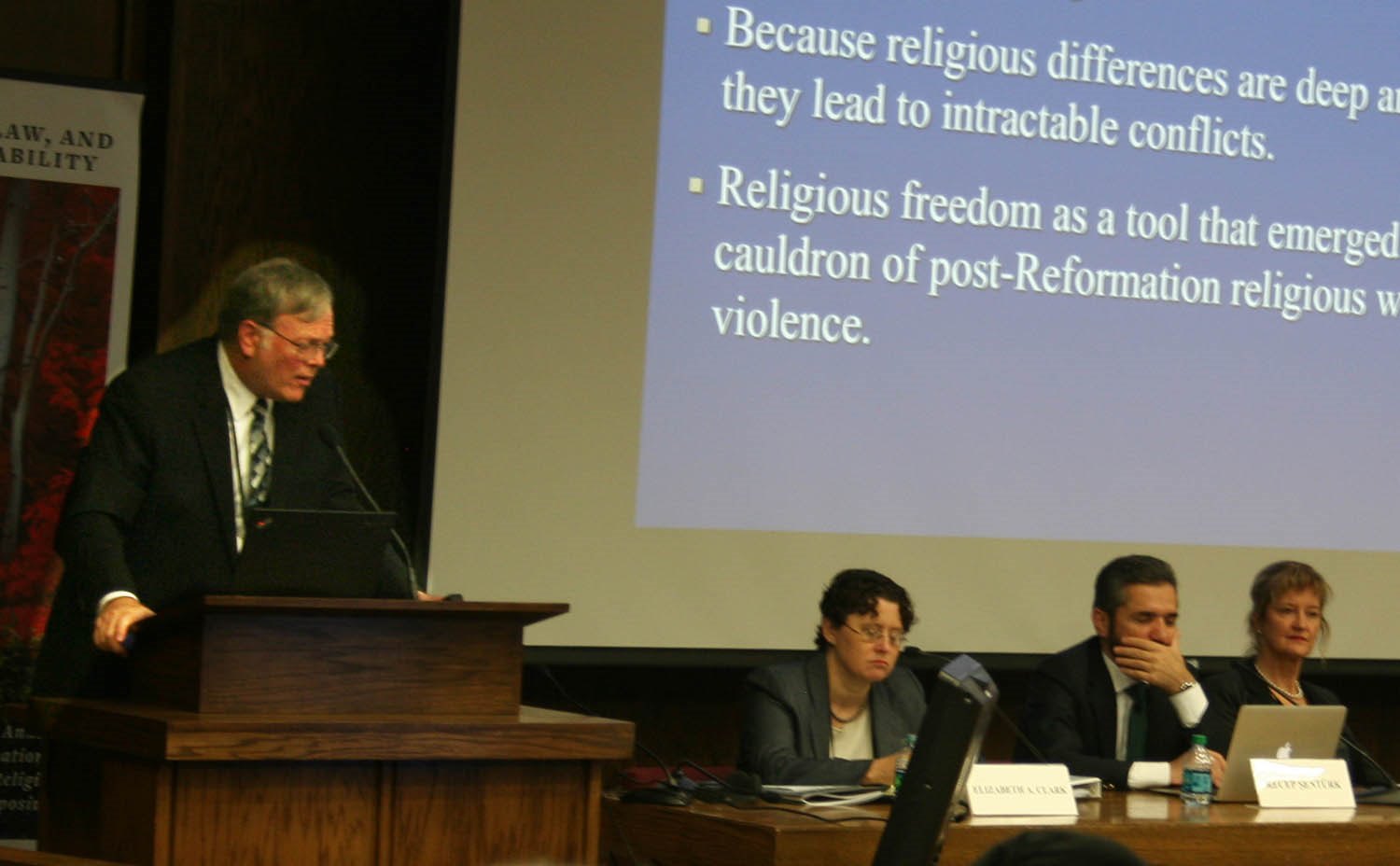
Reported by Tara Fitzgerald
In a session moderated by Elizabeth A. Clark, Associate Director of the International Center for Law and Religion Studies, Professors Rosalind I.J. Hackett, Recep Sentürk, and W. Cole Durham Jr. discussed social tensions that exist in the name of religion and what can be done to prevent future conflict.
Recep Şentürk, Professor of Sociology at the Alliance of Civilizations Institute at Fatih Sultan Mehmet Vakif University in Istanbul, Turkey, stated that the most pressing problem of our time is diversity management. He referred to our present age as “open civilization ” and claimed that “[d]iversity is either a source of conflict or power and prosperity depending on how it is managed.”History and religion show that diversity is indispensable. Managing…
Symposium 2015 Fourth Plenary Session: Conference Summation and Concluding Reflections on Conference Themes
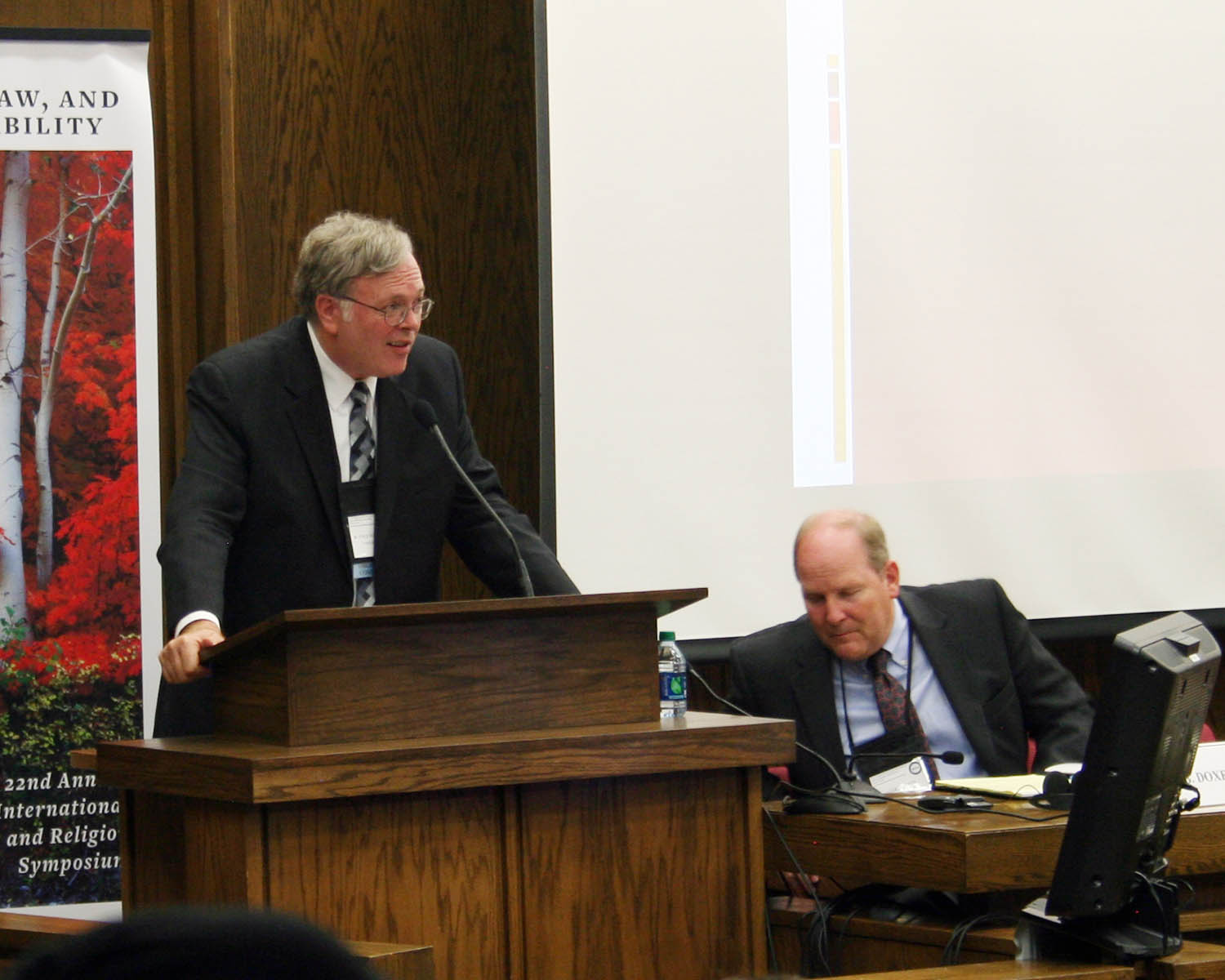
Reported by Annalee Hickman Moser
The final plenary session of the 22nd Annual International Law and Religion Symposium was moderated by Gary B. Doxey, Associate Director of the International Center for Law and Religion Studies at the J. Reuben Clark Law School at Brigham Young University. During this final plenary session of the Symposium, previous presenters were asked to give their final thoughts and reflections about the Symposium followed by a presentation by Silvio Ferrari, Professor of Canon Law at the University of Milan in Italy, and closing remarks by W. Cole Durham, Jr., Susa Young Gates Professor of Law and Director for the International Center for Law and Religion Studies at the J. Reuben Clark Law School at Brigham Young University
Alfonso Santiago, Director of the School of Policy, Government, and International Relations at Austral University, reemphasized the threats that people and religions might have regarding…
Symposium 2015: Interreligious Cooperation, Religious Freedom, & Social Stability
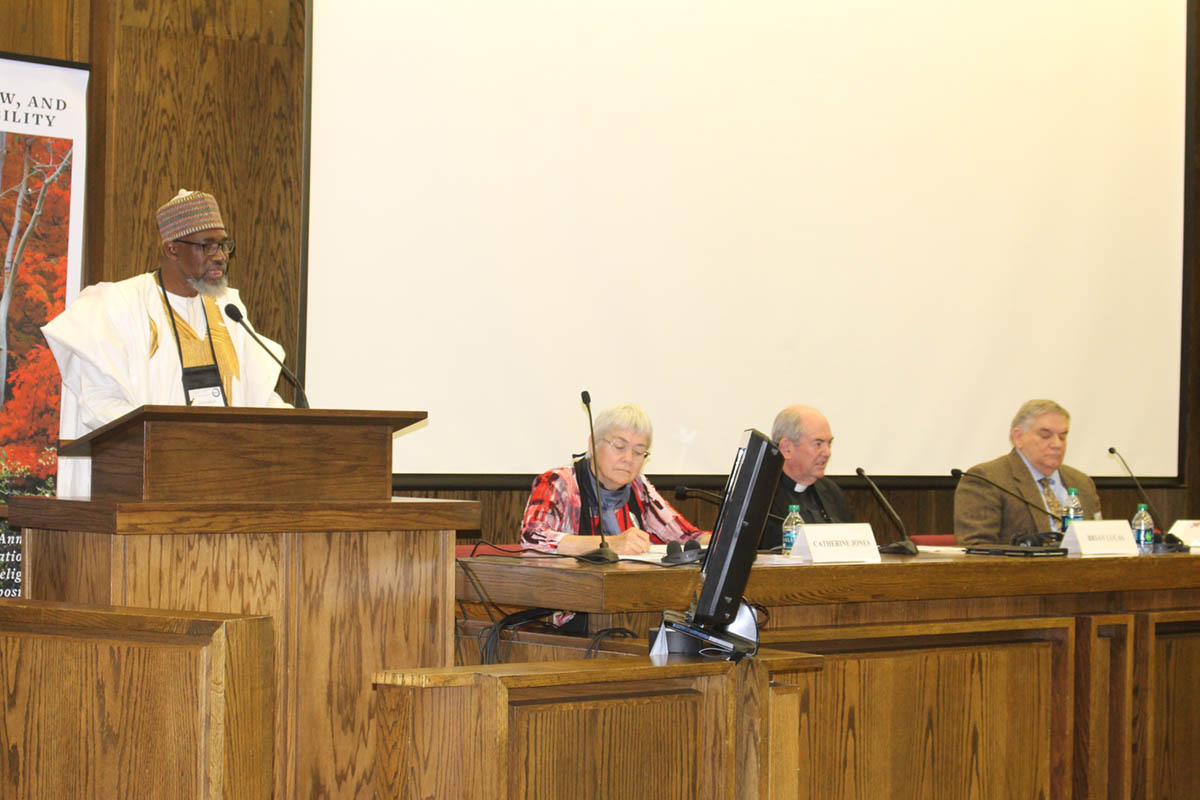
Reported by Tara Fitzgerald
This session was moderated by James E. Faulconer, Richard L. Evans Professor of Philosophy, Brigham Young University. Speakers included Abdur-Rahman Ahmad, Sheik, Ansar-Ud-Deen Society of Africa, Nigeria; Brian Lucas, General Secretary, Australian Catholic Bishops Conference; Sister Catherine Jones, Chair, New Zealand Catholic Bishops Committee for Interfaith Relations.
Abdur-Rahman Ahmad opened his remarks by stating that religion is under siege. He declared that religious communities must come together and answer questions concerning the purpose and value of religion, otherwise secularism will “push[] religion and God to the edges.” People of different faiths must come to a mutual…
Symposium 2015: Argentina, Mexico, and Peru
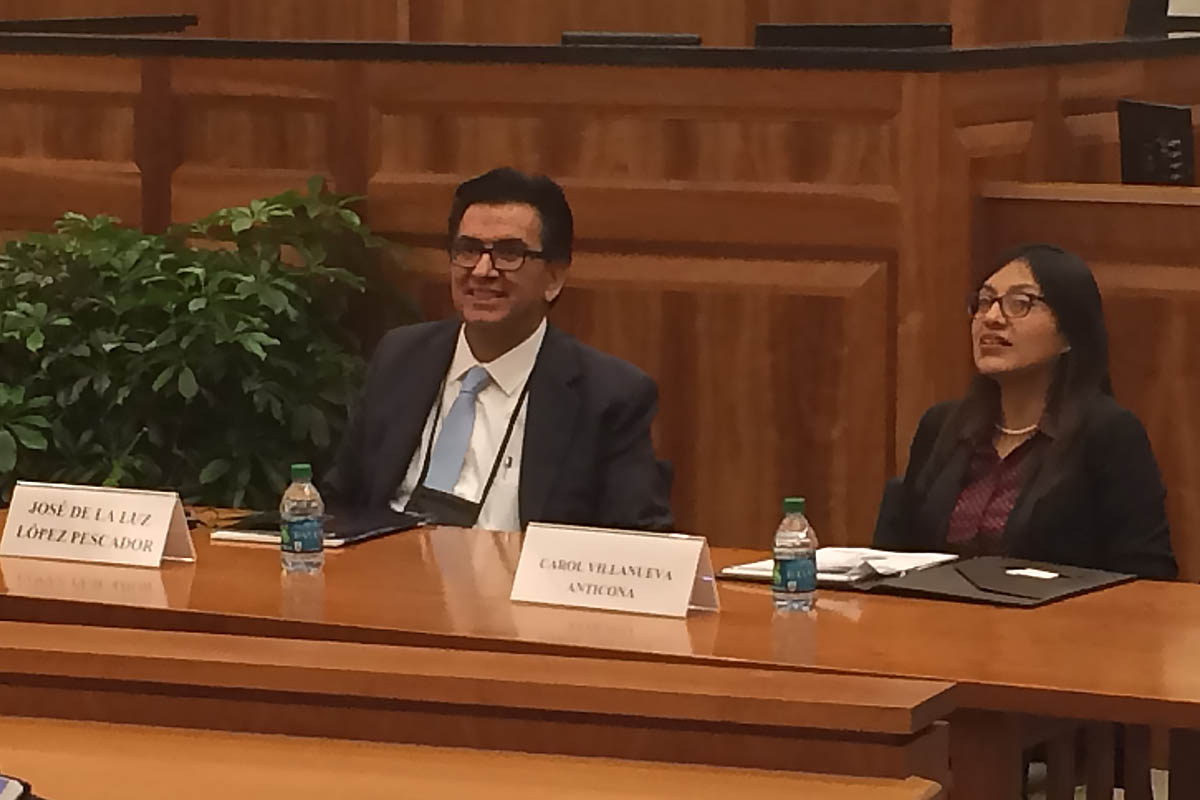
Reported by Raquel Flores
The Argentina, Mexico and Peru Breakout Session held on Monday, October 5, 2015 was moderated by Craig Galli, International Fellow of the International Center for Law and Religion Studies, and included, Father Julio Raul Méndez, Alfonso Santiago, José de la Luz Lopez Pescador, and Carol Villanueva Anticona as speakers.
Father Julio Raul Méndez, Presbyter Doctor of the Catholic University of Salta, Argentina, and priest of the Archbishopric, was the first to speak. Father Méndez expressed concern about new normative and judicial initiatives that are encroaching on the religious freedom guaranteed by Argentina’s Constitution. One serious problem is a new movement that seeks to remove religious instruction from public schools. …
Symposium 2015: Vietnam and Cambodia
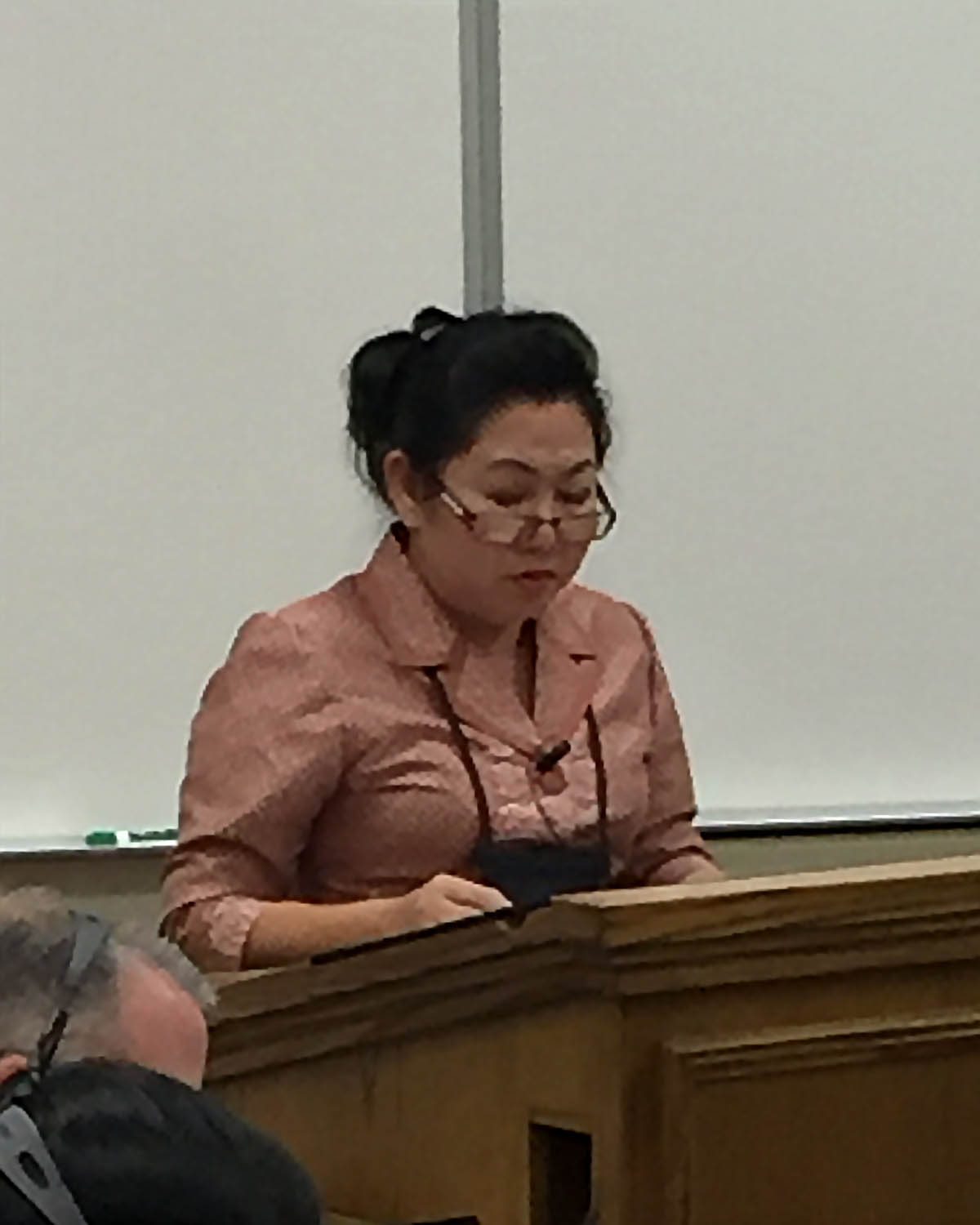
Reported by Lauren Ravsten Robins
In a break-out session moderated by Richard H. Page, International Fellow for the International Center for Law and Religion Studies, there were two speakers, Pham Xuan Truong from Vietnam and Min Chan Dy Neth from Cambodia. Each spoke on the importance of religious freedom in their respective countries.
Pham Xuan Truong, the Deputy General Director, Protestant Department, Government Committee for Religious Affairs, discussed how different religions are equal before the law in his country of Vietnam. He also spoke of the simplified process to register a new religion, and how this simpler process makes the country friendlier for all religions generally. He also addressed how under the Constitution…
Symposium 2015: Brazil
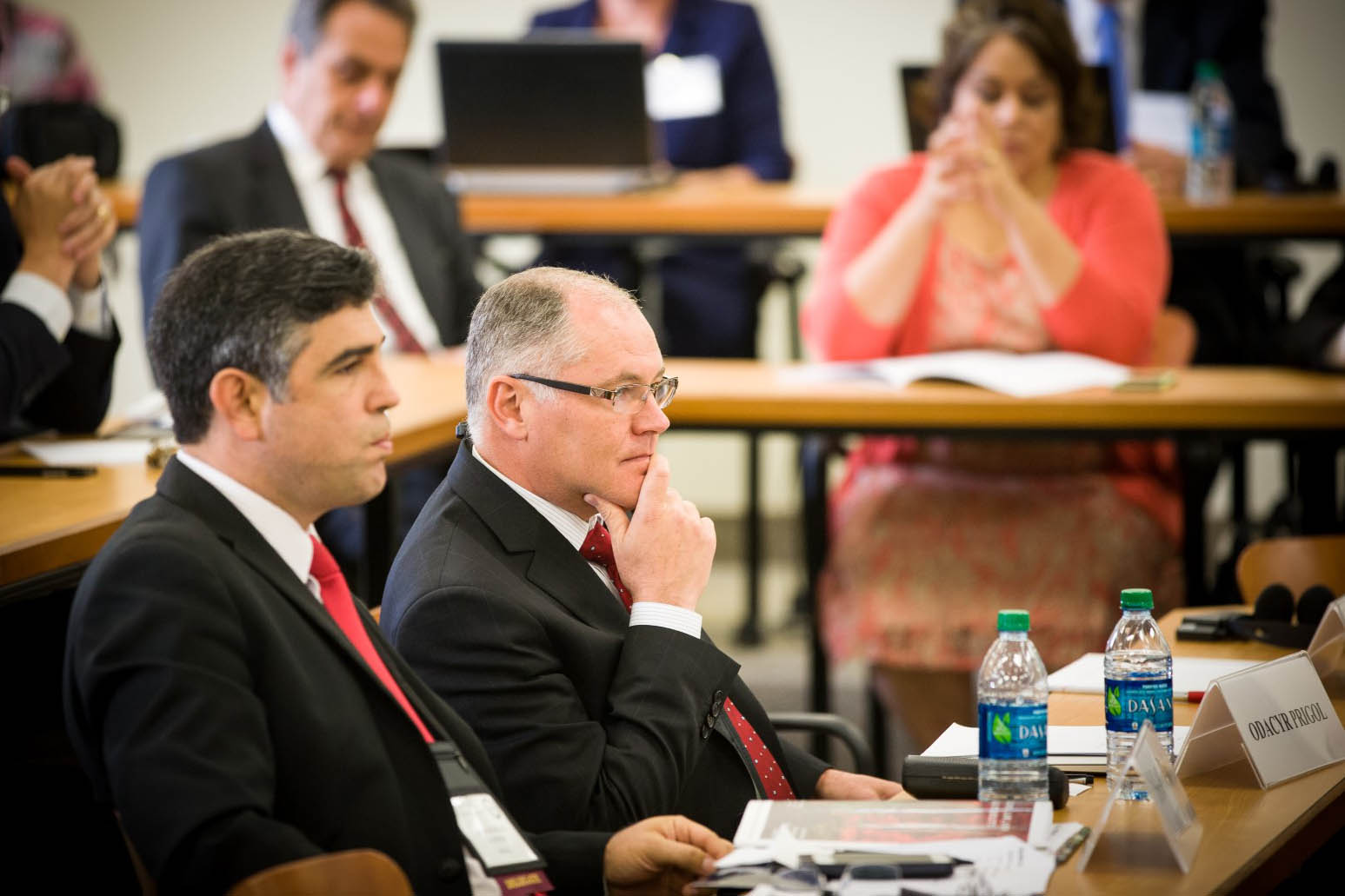
Reported by Gaylee Coverston
In the session on Brazil, Ricardo Leite, founding partner of Cerqueira Leite Advogados Associados, and previous Chief Legal Advisor for the South and Southeast Region of Shell Brazil, acted as moderator for the panel of delegates as they presented a celebration of Religious freedom in Brazil.
Moroni Torgan, member of the Brazilian Congress representing the state of Ceara̒, presented information on the Parliamentary Front for Religious Freedom, of which he is the president. This Parliamentary group includes over two hundred congressmen and twenty Senators with a united purpose to preserve religious freedom. The motto, “It isn’t enough to believe, you must also respect,” is the guiding motivation for the work performed by the Front. Congressman Torgan…
Symposium 2015: Judicial Perspectives – Mogoeng Mogoeng, Chief Justice of the Constitutional Court of South Africa
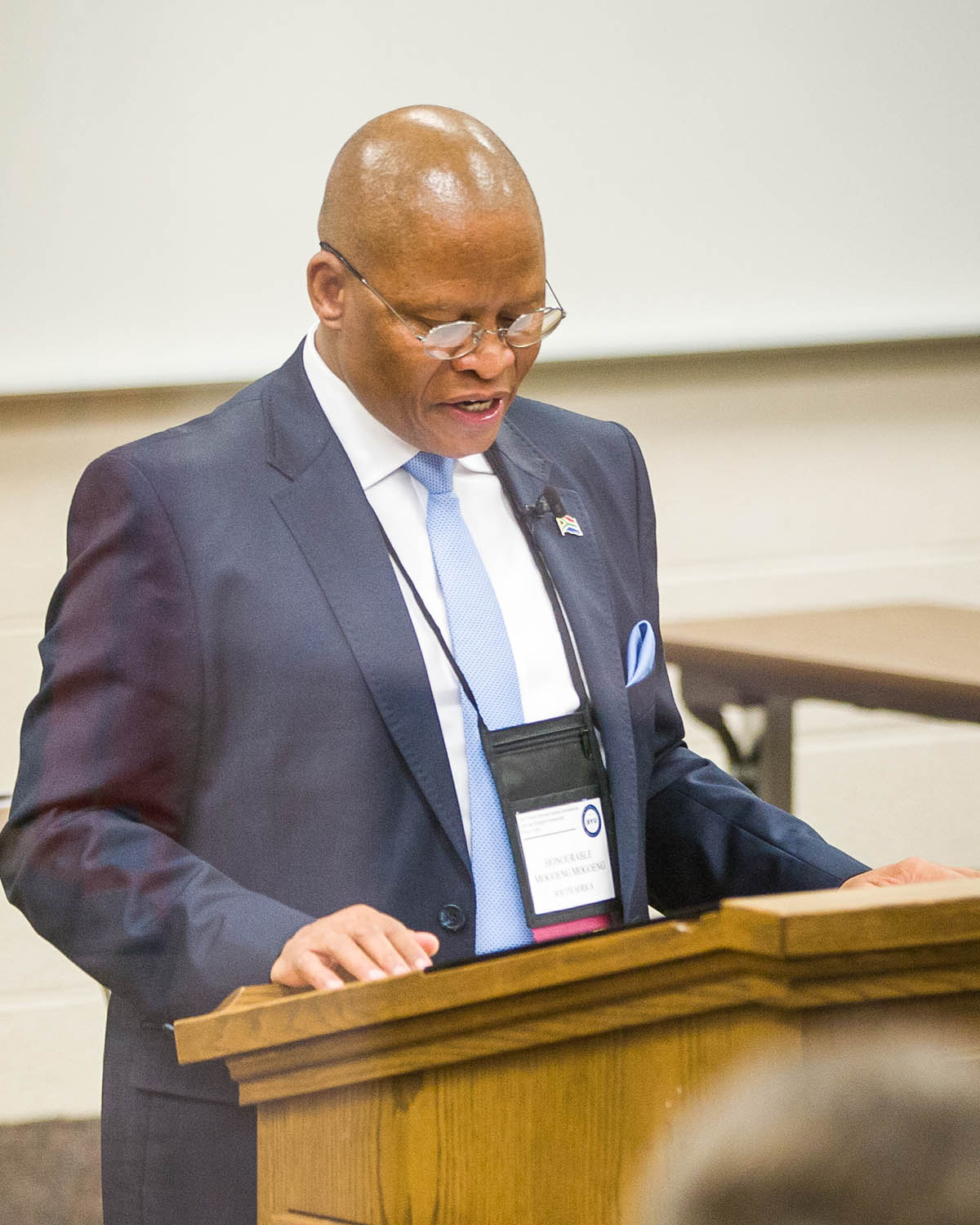
Reported by Jordan Pendergrass
Chief Justice Mogoeng Mogoeng of the Constitutional Court of South Africa was the symposium’s first presenter in a series dedicated to judicial perspectives. His remarks revolved around two unique aspects of law and religion in South Africa. First, he described how, to a certain extent, apartheid was born out of a belief influenced by religion. He then demonstrated how religion now enjoys a protected place in and contributes positively to society.
Chief Justice Mogoeng began his presentation by referring to Hendrik Verwoerd, the architect of apartheid. Verwoerd had deep religious formation, and there are Biblical passages that can be interpreted to support apartheid. Although there were other significant contributing factors to South Africa’s atrocities, there exists…
Symposium 2015: Canada
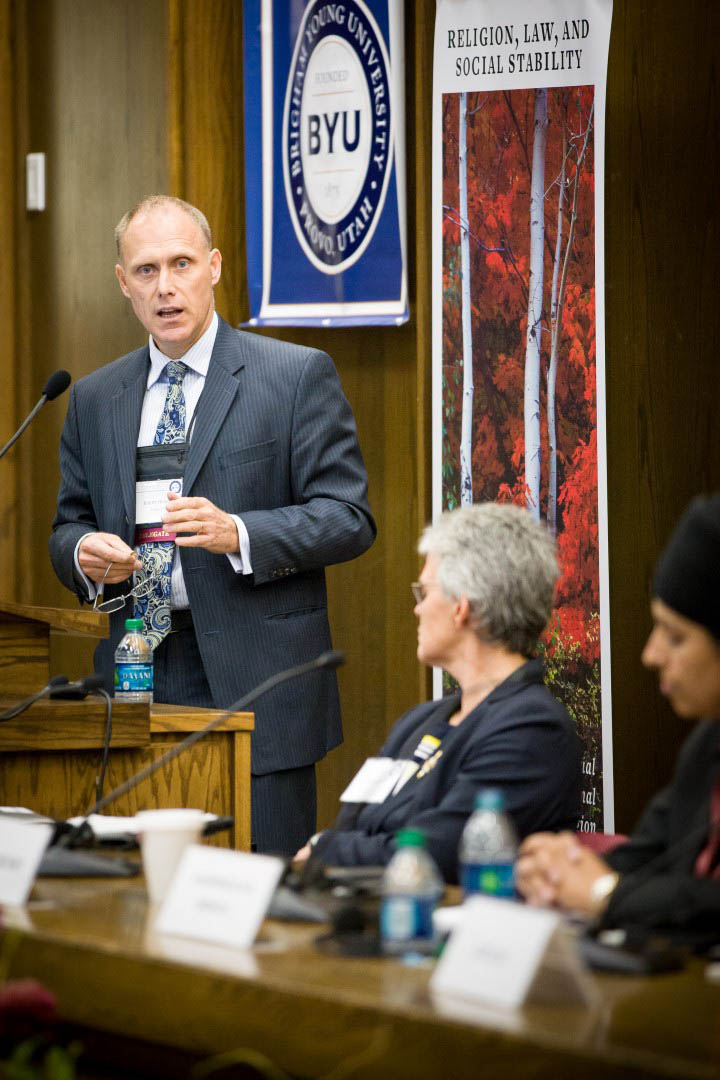
Reported by Annalee Hickman Moser
In the Canada Breakout Session moderated by Sandra Pallin, a barrister and solicitor from Canada, our distinguished delegates, Barry Bussey, Palbinder Kaur Shergill, and Anna Su, discussed the most recent intersections of religion and the law in Canada.
Barry Bussey, a member of the Legal Affairs department for the Canadian Council of Christian Charities, provided an overview of his dissertation that he will shortly complete. His thesis is that “special constitutional and legal protection of religious freedom is necessary for the survival of the democratic project.” One recent event that is influencing the research and analysis for his dissertation is the desire of Trinity Western University (“Trinity”), a Christian university, to open a law school. There is a community covenant that must be signed by every student attending Trinity…
Symposium 2015: Costa Rica – Parliamentary Initiatives
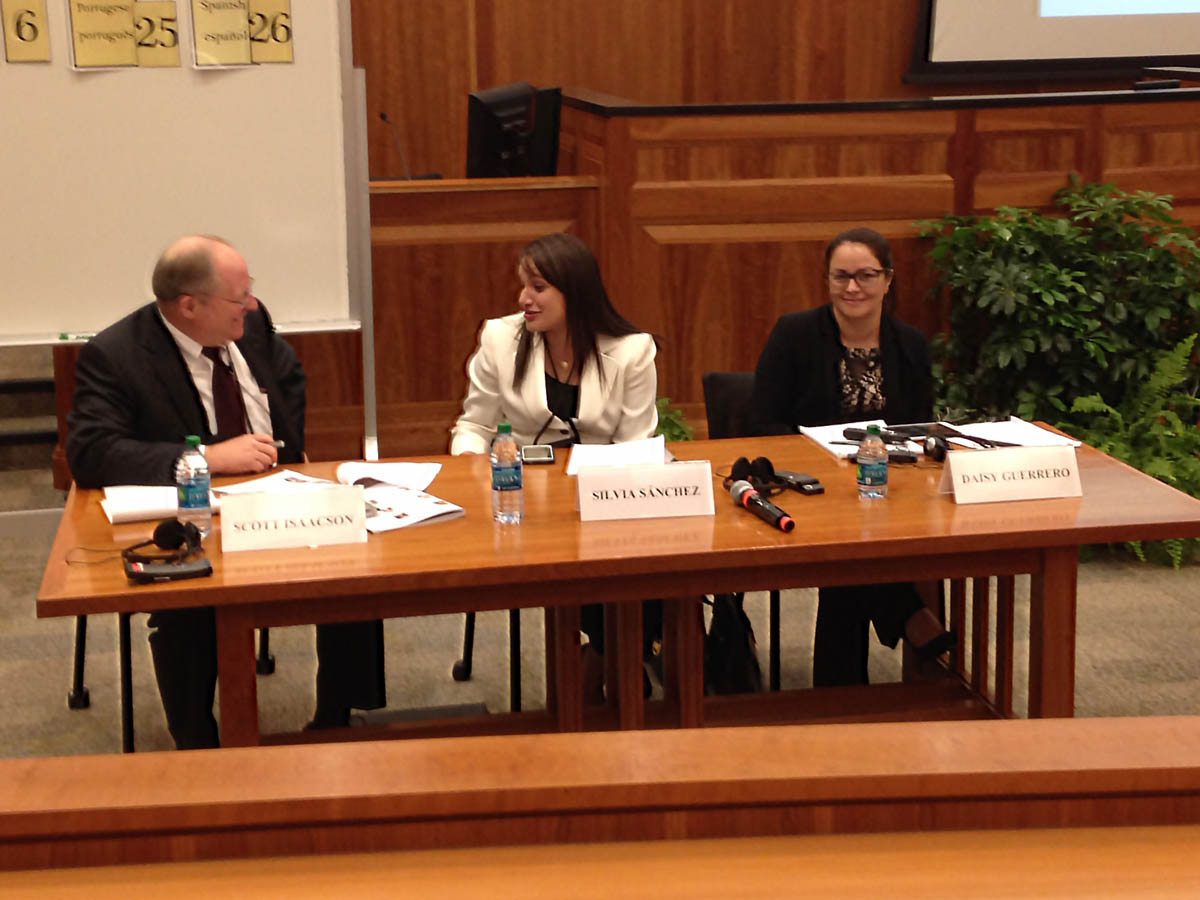
Reported by Alex Biggs
Scott E. Isaacson, Regional Advisor for Latin American, International Center for Law and Religion Studies moderated this session. Presenters and panelists included Silvia Sánchez, Member of Congress, Legislative Assembly; Fabricio Alvarado, Member of Congress, Legislative Assembly; Mónica Catalán, Daisy Guerrero and César Zuñiga, advisors to the Legislative Assembly of Costa Rica.
The first presenter was Silvia Sanchez, a member of Congress, currently presiding over the Commission for the bill of Law on Religious Freedom. She discussed Article 75 of the Costa Rican Constitution…
Symposium 2015: India
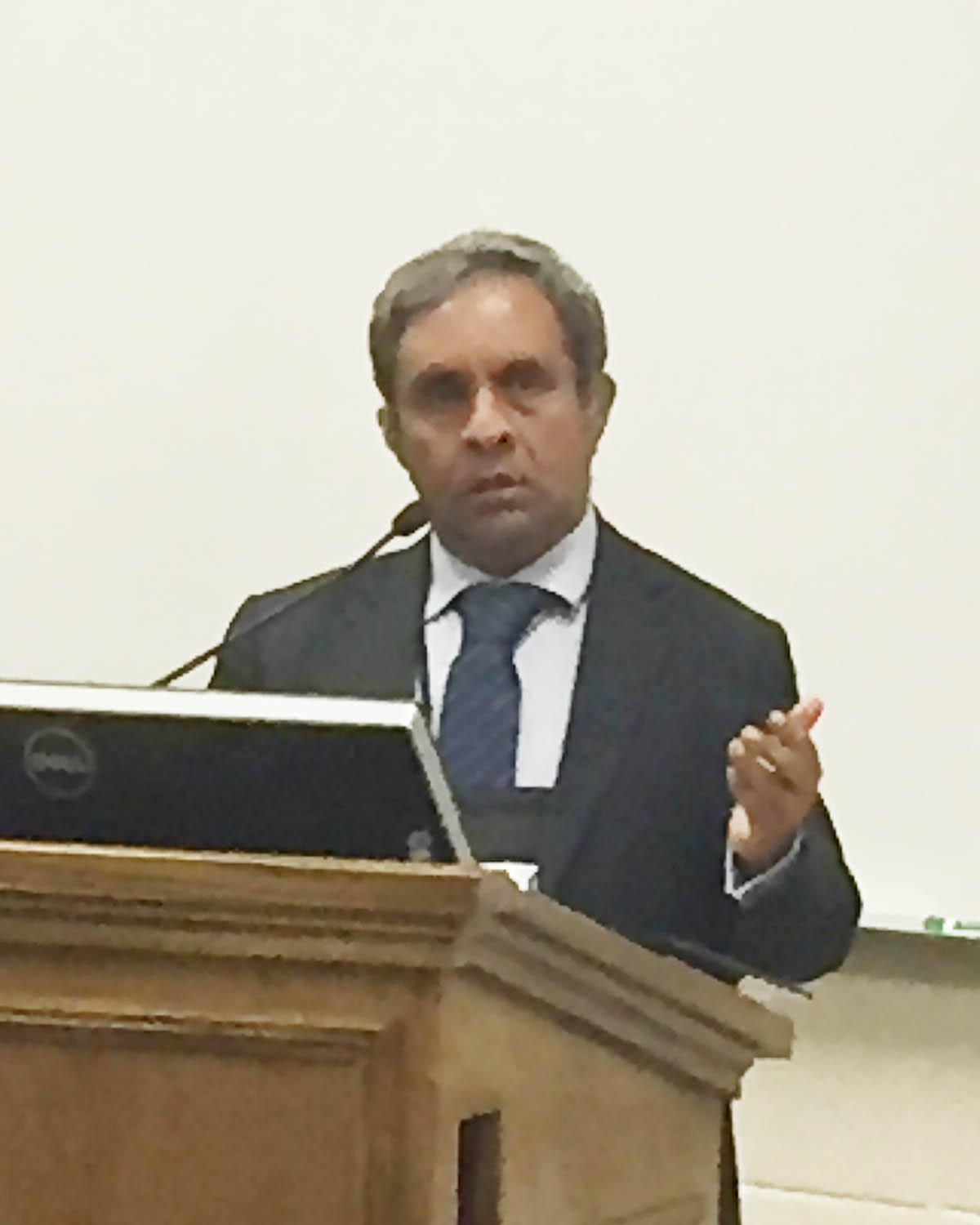
Reported by Jarvis Yau
This session was moderated by Eric Hyer, an associate professor of Political Science at Brigham Young University. The presenter was Ambassador Venkatesan Ashok, Consul General of India, Indian Consulate to the United States.
Ambassador Venkatesan Ashok, Consul General of India, Indian Consulate to the United States, started his presentation by making it clear that religious freedom is a fundamental right in India. He said that India is a secular state and thus will not discriminate against any religion. There are settled laws to prohibit hate speech, and people are encouraged to embrace their own beliefs. He then talked about the major religions in India, and more specifically about Hinduism. He said that India…
Symposium 2015: Nigeria and Democratic Republic of the Congo
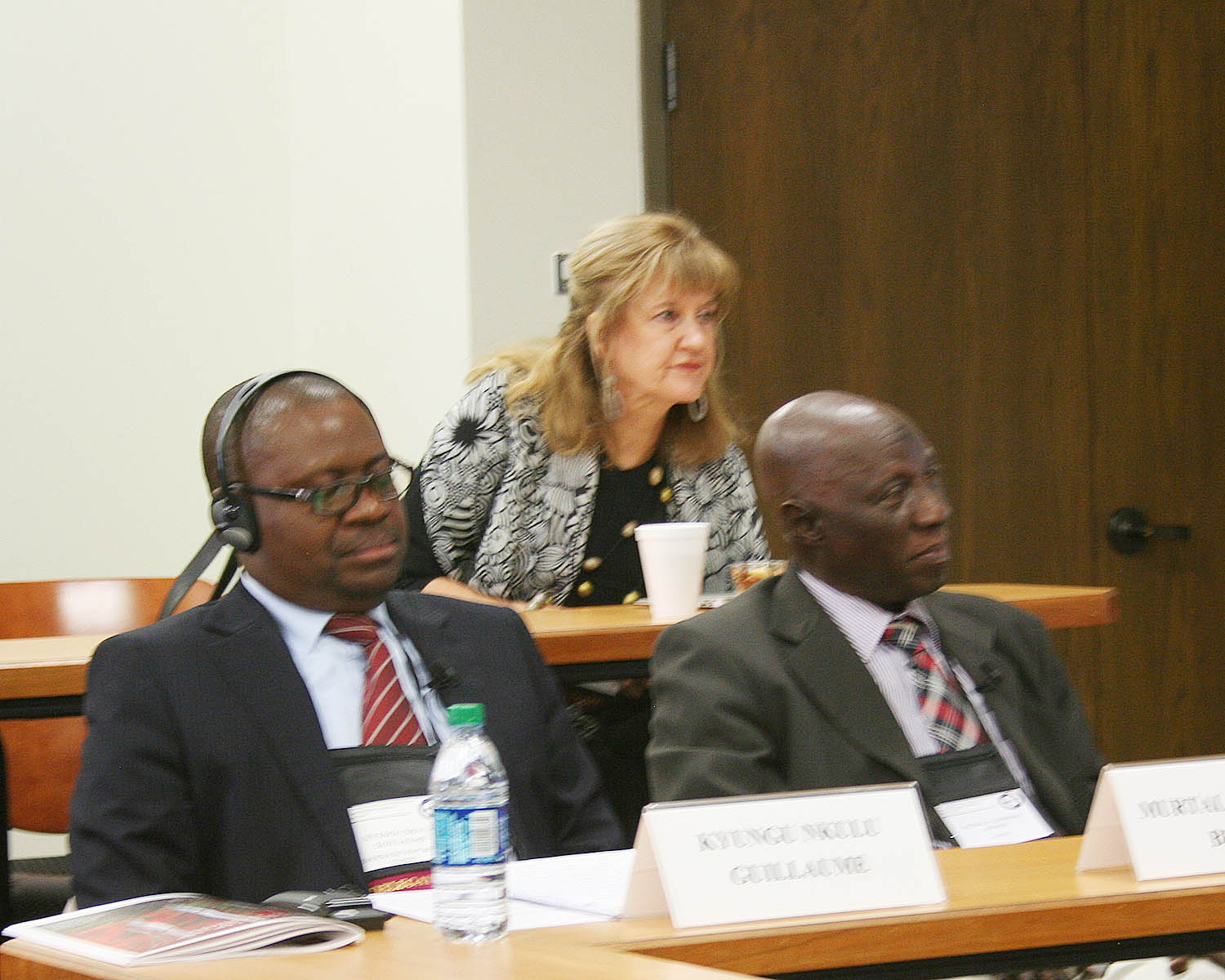
Reported by Blythe Shupe
This session was moderated by Leslie Hadfield, Assistant Professor in the Department of History of Brigham Young University. Panelists were Murtala Aderemi Bidmos of Nigeria and Kyungu Nkulu Guillaume of the Democratic Republic of the Congo.
Murtala Aderemi Bidmos, a professor at the University of Lagos in Nigeria, spoke of his teaching efforts to promote interfaith relationships amongst his students. He works to remove misinformation between Muslims and Christians and to encourage his students to find projects that they can build together.
Professor Bidmos argued that the lack of development in Nigeria is due to corruption. Corruption is a function of the heart and by cleansing the heart, you can being the process of nation building. By…
Symposium 2015: Judicial Perspectives – Mariano Germán Mejía, Chief Justice of the Supreme Court of the Dominican Republic
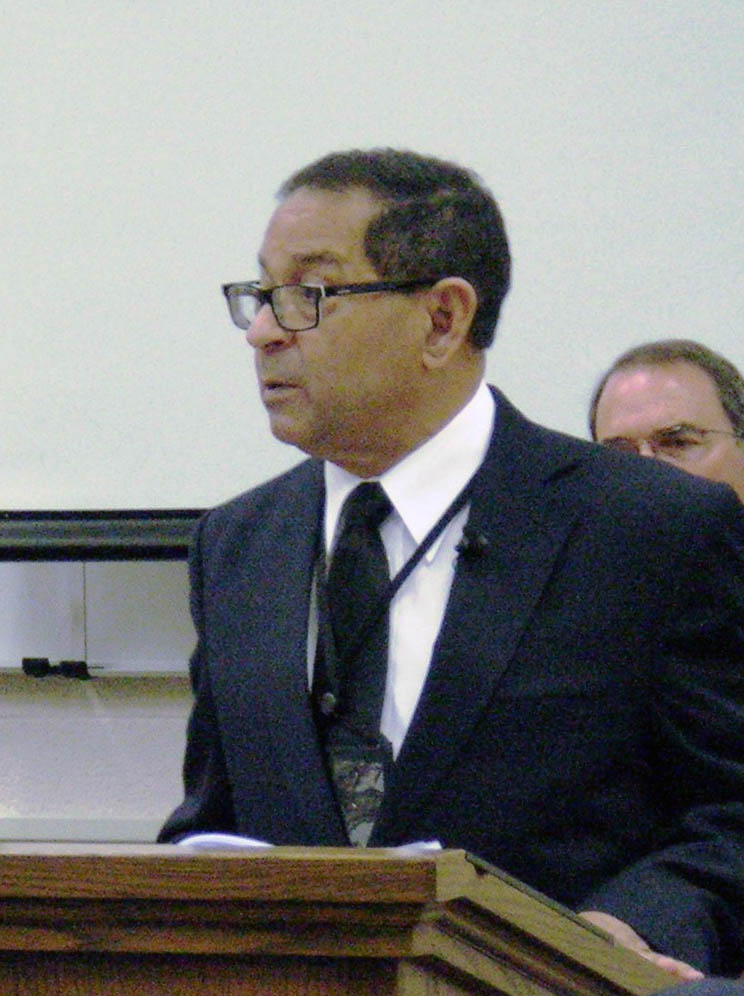
Reported by Jordan Pendergrass
Mariano Germán Mejía, Chief Justice of the Supreme Court of the Dominican Republic, was the symposium’s second presenter in a series on the judicial perspective of law and religion. He discussed how the Dominican Republic, a nation with more than 90% of the population identifying as Roman Catholic, has benefited greatly from a marriage of law and religion. The Chief Justice expressed confidence that law and religion will never be divorced in the Dominican Republic.
Chief Justice Germán Mejía provided background on his nation’s history and spoke about the difference between the formative experiences of Haiti and the Dominican Republic. Despite similar geographical features between the two countries of Hispaniola, the Dominican people have developed a distinct identity that…
Symposium 2015: Religion and Foreign Policy
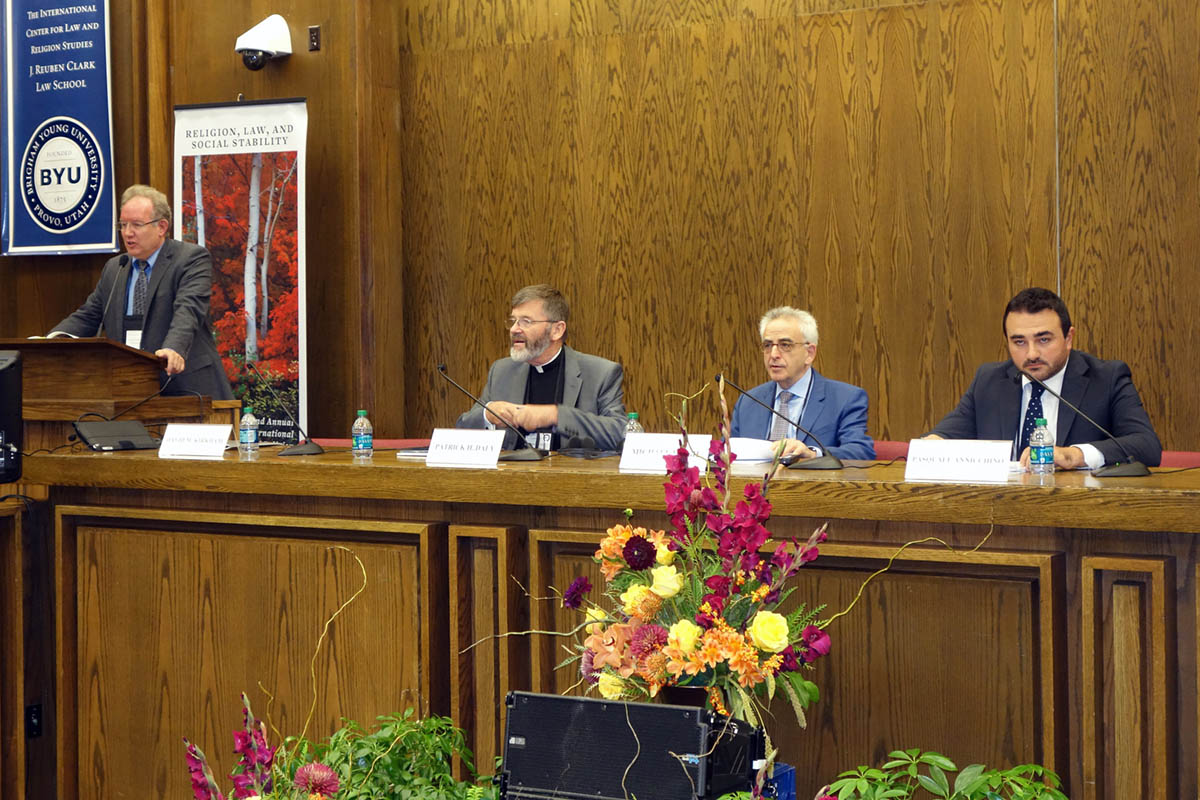
Reported by Abby McKeon
The session opened with the moderator, David M. Kirkham, Academic Director, Brigham Young University London Centre, pointing out that in recent years, there has been a widespread reevaluation of religion and foreign policy with the hope that this will result in religion being used as a force for good in the relations of foreign nations.200
Patrick H. Daly, General Secretary from the Commission of the Bishops’ Conferences of the European Community, presented on the effect of religion in European Union (EU) foreign policy. The EU is based on fundamental Christian principles of forgiving the past and working together. However, in recent years, the EU has become ambivalent to the religious ideals that inspired it and it is no longer polite to share your religious convictions. Because many view the EU as a secular project…
Symposium 2015: Latin America – Government Perspectives (Tuesday 10:00 am session)
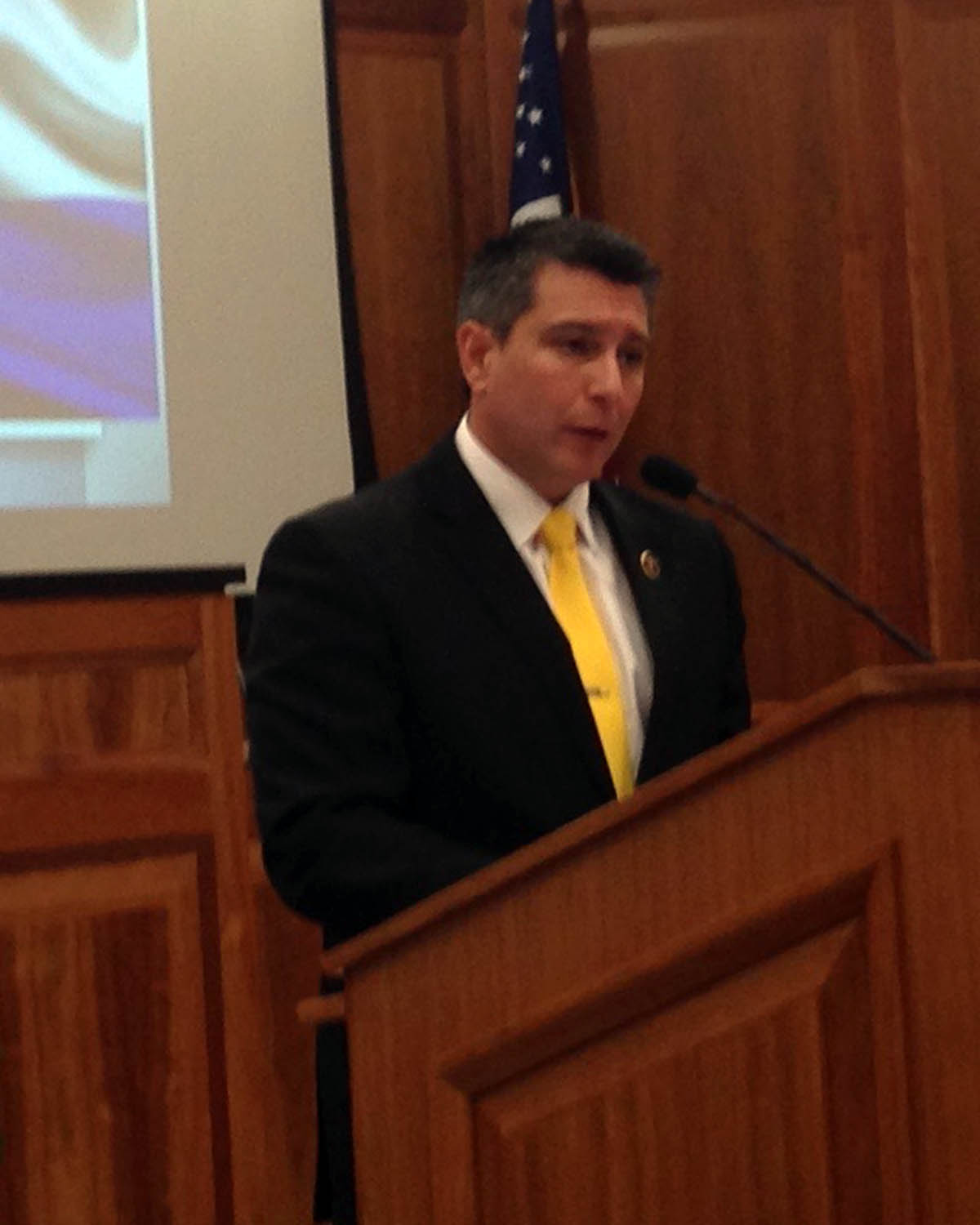
Reported by Annalee Hickman Moser
In the Latin America – Government Perspectives Breakout Session moderated by Michael Wood, International Fellow for the International Center for Law and Religion Studies at the J. Reuben Clark Law School at Brigham Young University, Darío Filártiga, from Paraguay, and Guillermo Mendoza, from Paraguay, each presented on their country and how Paraguay is continuing to support religious freedom.
Darío Filártiga, Minister and Political Advisor to the President for the government of Paraguay, gave the history of the relationship between church and state in Paraguay and described briefly its current state today. In 1844, for the first time, its constitution recognized the Catholic Church as the religion of the state, but…
Symposium 2015: South Korea
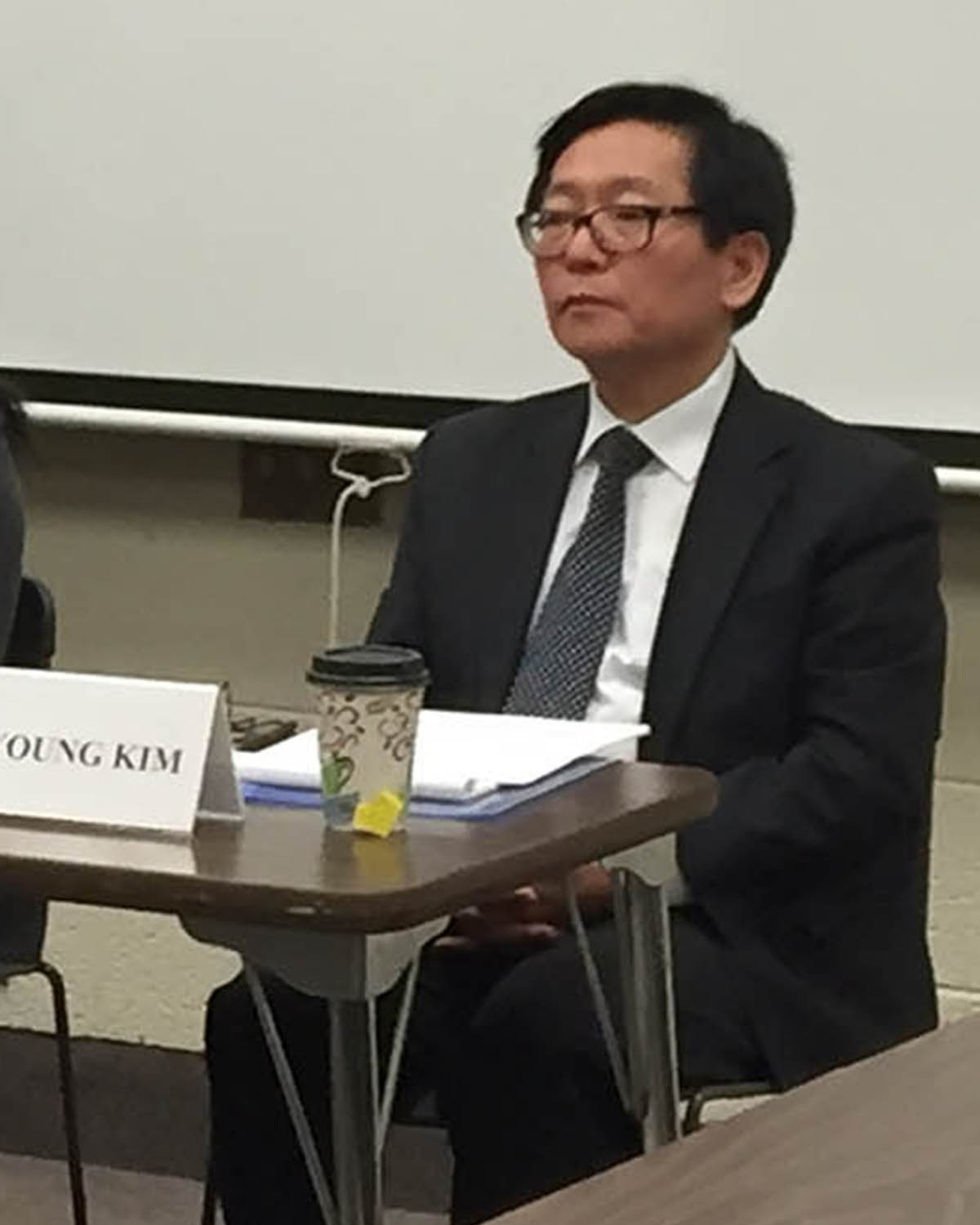
Reported by Jarvis Yau and Joe Hepworth
This session was moderated by Victor Taylor, an international fellow of the International Center for Law and Religion Studies and a shareholder at the law firm of Parr Brown Gee & Loveless. The presenter was Professor Chae-Young Kim, a professor of religious studies at Sogang University in South Korea.
Professor Chae-Young Kim stated that South Korea has not traditionally had conflict related to religion. However more recently, separation of state and religion are becoming a hot issue.
Over half of South Korea’s 50 million residents are religious. Buddhism…
Symposium 2015: Syria and Turkey
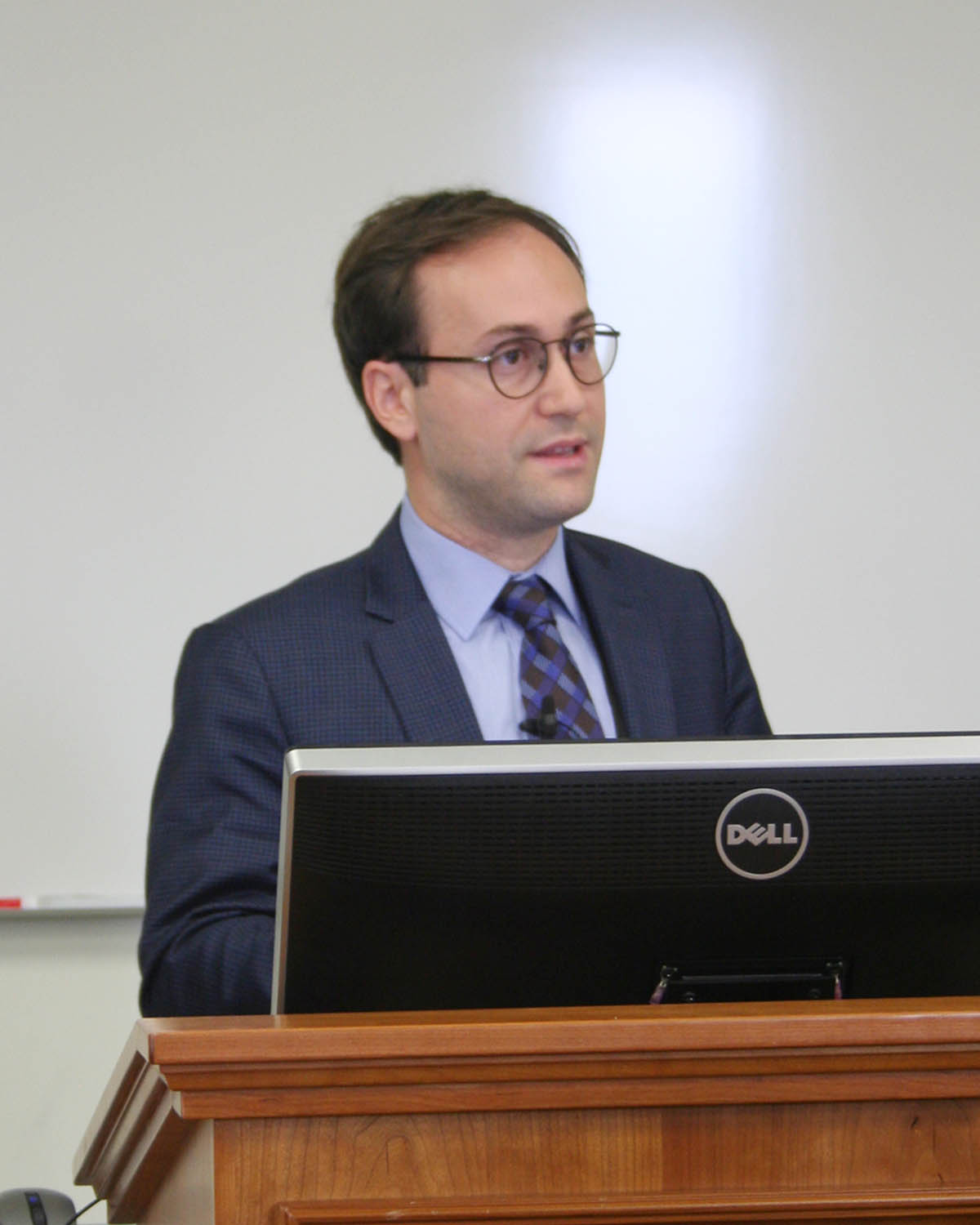
Reported by Blythe Shupe
This session was moderated by Quinn Mecham, Assistant Professor in the Department of Political Science at Brigham Young University. The panelists were Nuri Bodur, Attorney, Esin Attorney Partnership, Turkey; and Nabil Fayyad, Syrian Delegation for Constitutional Reform.
Nuri Bodur, an attorney with Esin Attorney Partnership, examined freedom of religion in Turkey through the eyes of the European Court of Human Rights (ECHR). There have been nine cases wherein Turkey was found in violation of Article 9, freedom of thought, conscience and religion by the ECHR. He reviewed Article 24 of the Turkish Constitution which states that everyone has the freedom…
Symposium 2015: Judicial Perspectives – Hilario Davide, Jr., Chief Justice (Ret.), Supreme Court of the Philippines
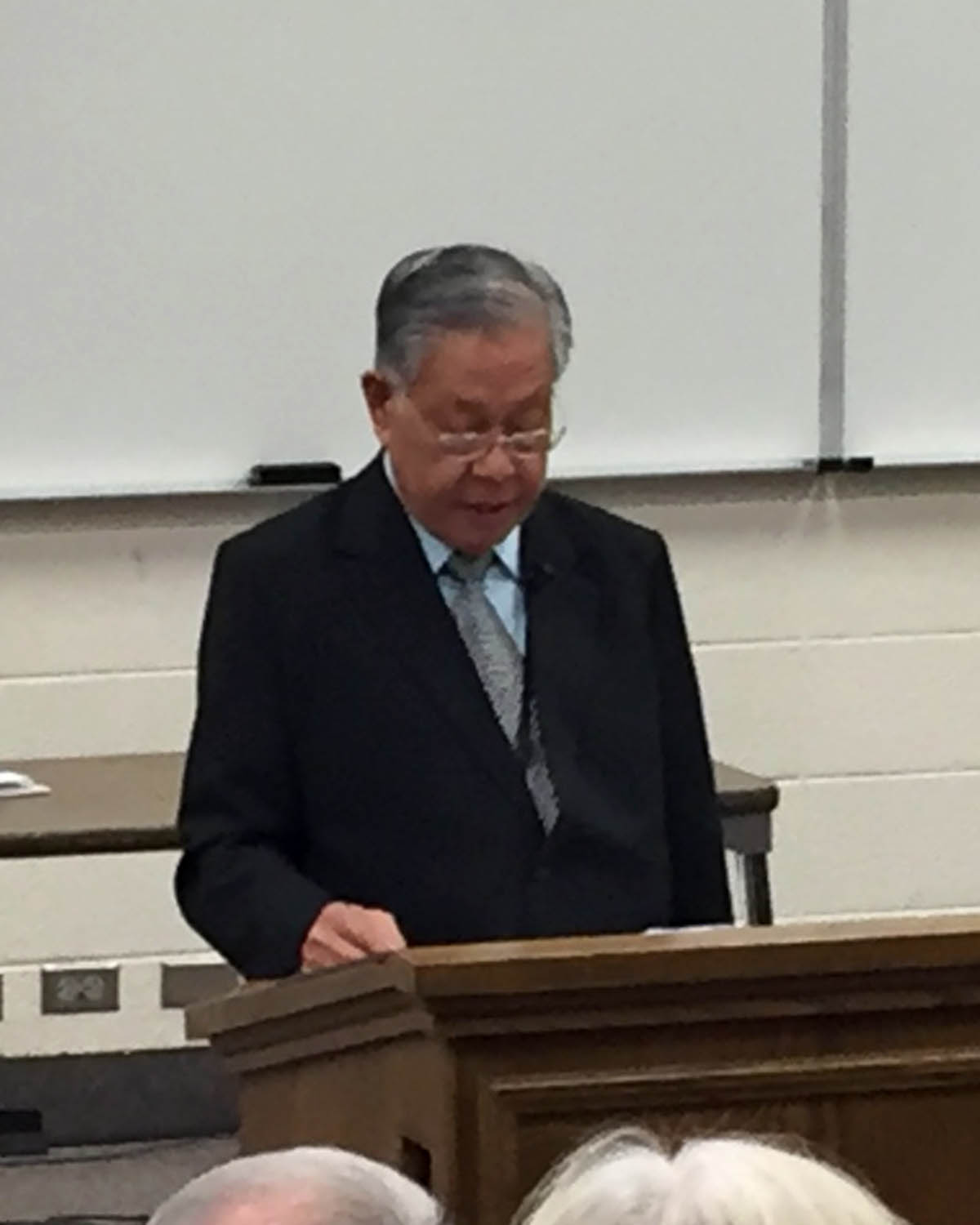
Reported by Lauren Ravsten Robins
In a session moderated by J. Clifford Wallace, Chief Judge Emeritus, U.S. Court of Appeals for the Ninth Circuit, the distinguished Hilario Davide Jr., a Former Permanent Representative of the Philippines and Chief Justice of the Supreme Court of the Philippines spoke on the matter of religious freedom and the interaction of religion and governmental influence in the Philippines.
First, Chief Justice Davide addressed the gender and political issues that have flanked the Philippines government for years, as well as the tension that has existed between the different religious sects of people. The country is 50% Roman Catholic and Christian with a substantial number of Muslims living in Manila. This great…
Symposium 2015: Interreligious Cooperation, Religious Freedom, & Social Stability
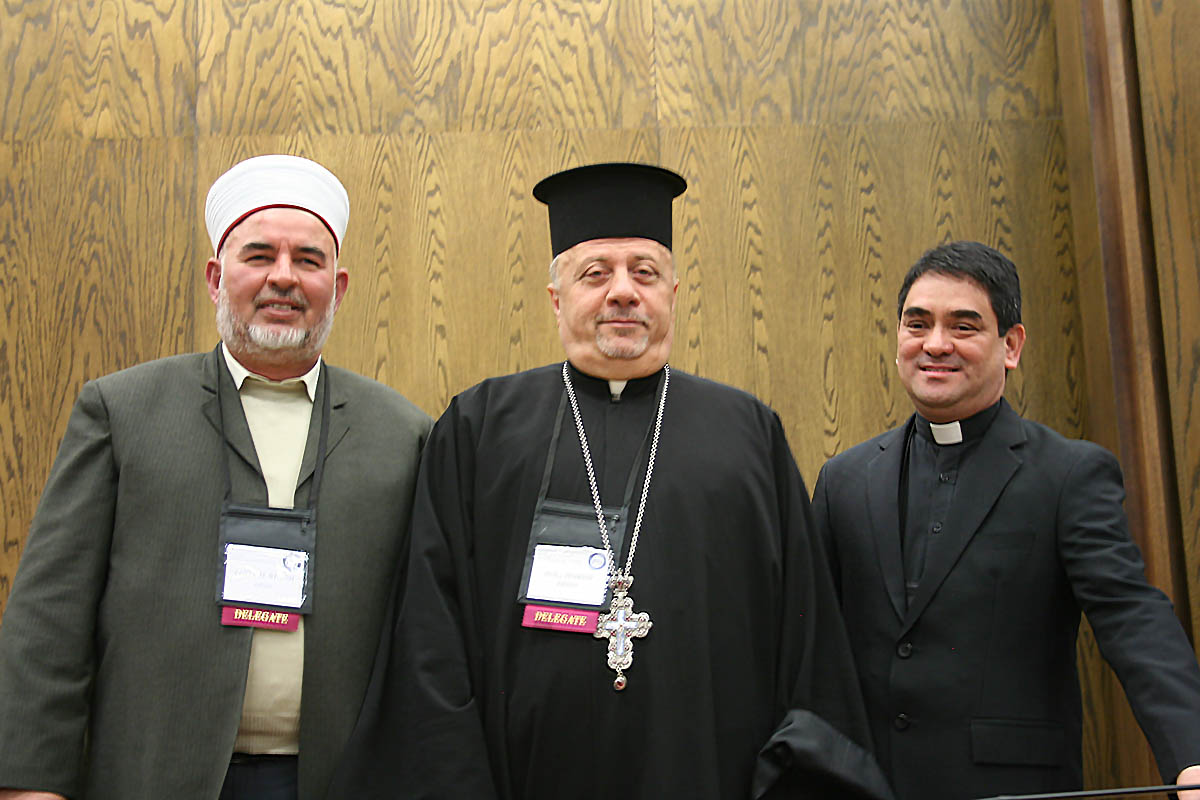
Reported by Tara Fitzgerald
This session was moderated by Shon Hopkin, Assistant Professor of Ancient Scripture, Religious Studies Center, Brigham Young University and featured Yahya Al-Btoush, Grand Mufti, Jordanian Armed Forces; Fr. Richard Babao, Assistant Minister, Roman Catholic Archdiocese of Manila; and Fr. Nabil Haddad, Founder and Director, Jordanian Interfaith Coexistence Research Center.
Grand Mufti Yahya Al-Btoush shared the “Amman Message”—the message of Islamic thoughts and beliefs that oppose terrorism and extremism. The elements and principles of this message were approved by 500 Muslim men from all over the world who met in Jordan in 2005. International courses explaining the content of this message have been…
Symposium 2015: Latin America – Government Perspectives (Tuesday 11:15 am session)
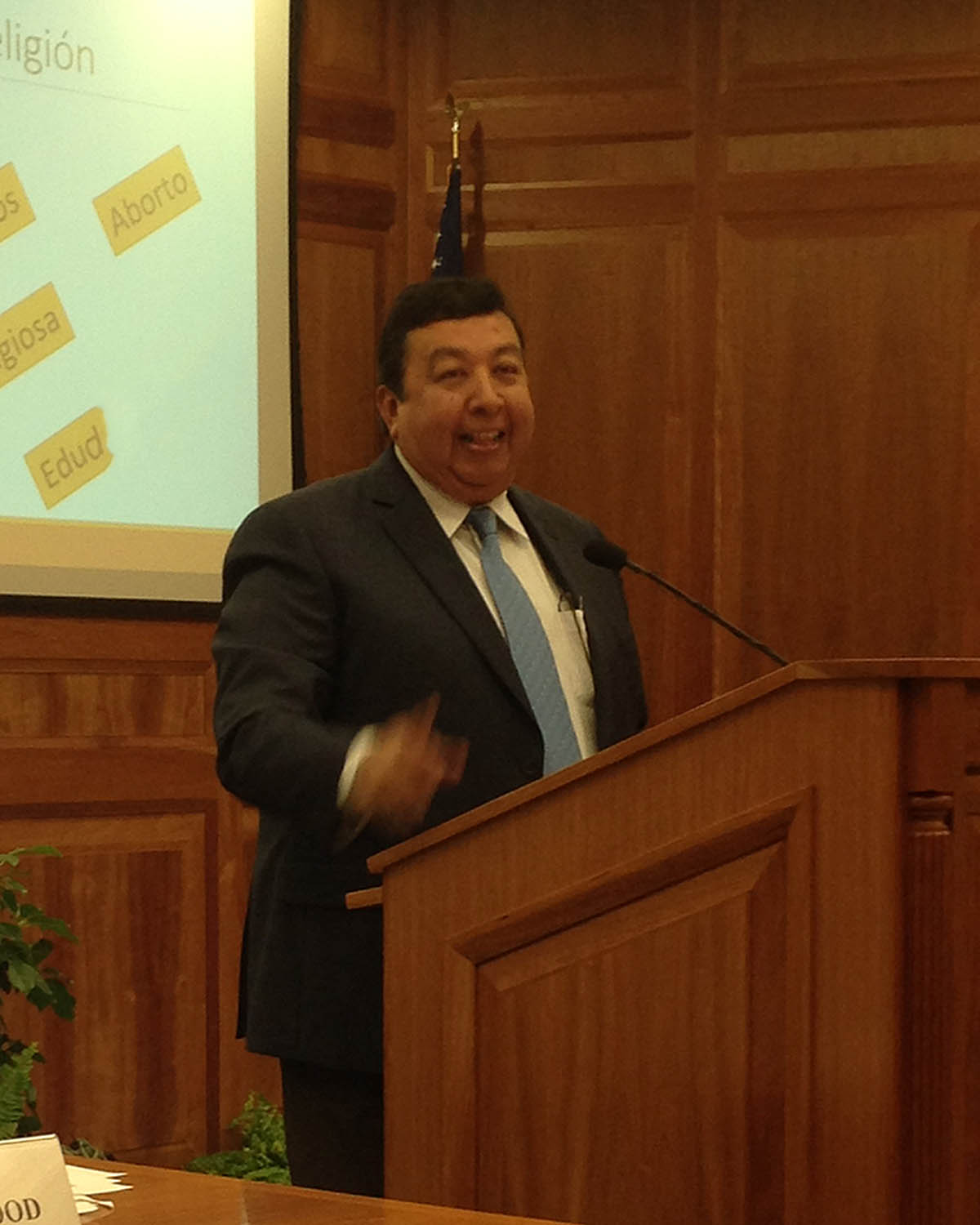
Reported by Alex Biggs
Mark Wood, International Fellow, International Center for Law and Religion Studies, moderated this session. Presenters were Luis Fernando Mendoza Jiménez, Counsel of the Legislative Assembly of Costa Rica; César Jáuregui Robles, Attorney, Lozano Gracia and Associates; and Luis Fernando Morales Núñez, Director General of the Administration of Federal Real Estate Assets, INDAABIN.
The first presenter was Luis Fernando Mendoza Jiménez. He began by noting that the majority of people in Costa Rica are tolerant of religions, but it was not always like that. For instance, during colonial times, the Catholic Church was seen and accepted as the only religion. Now the majority of Costa Ricans are members of various…
2015 Symposium: International Organizations
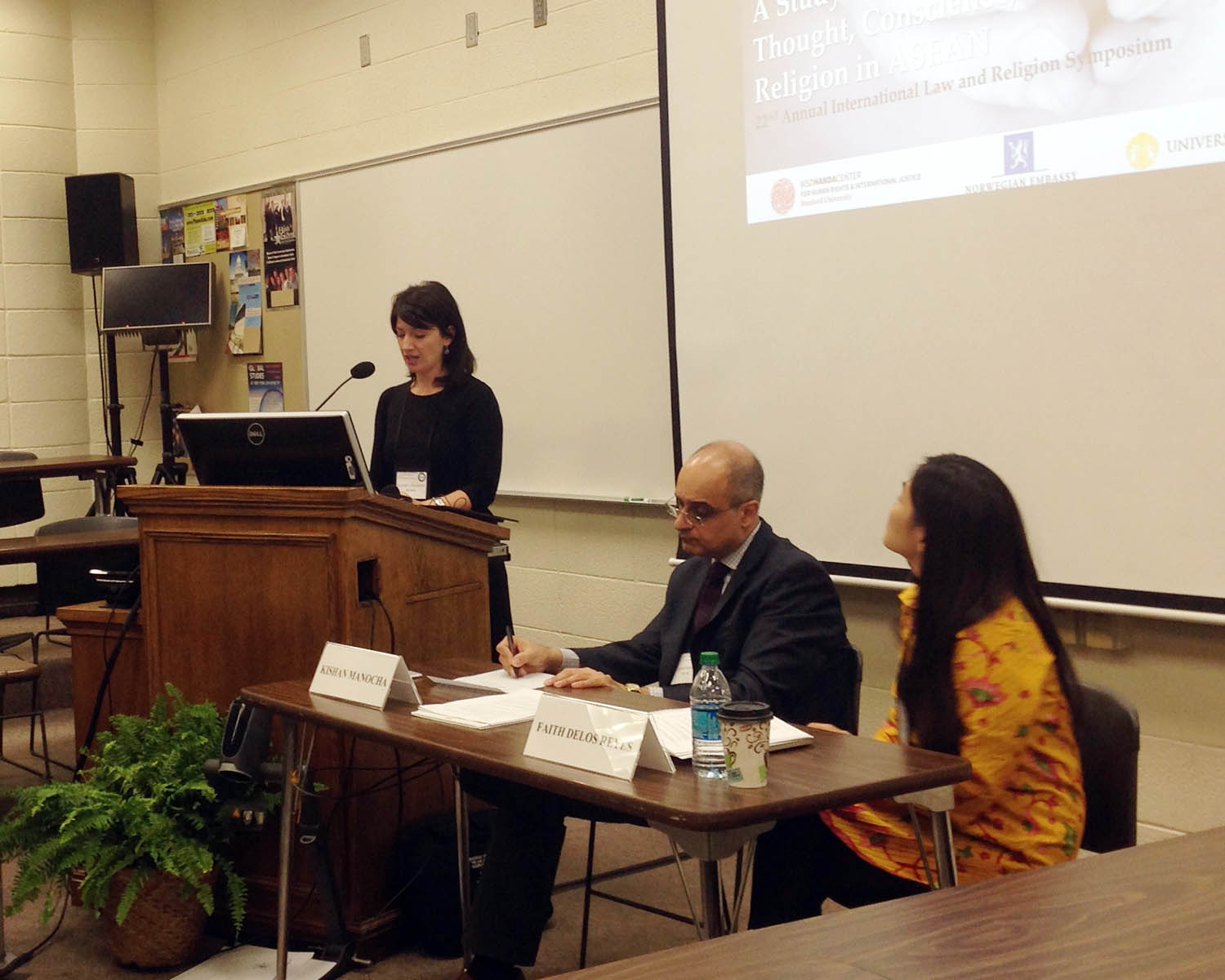
Reported by Annalee Hickman Moser
In the International Perspectives Breakout Session moderated by David H. Moore, professor of law at the J. Reuben Clark Law School at Brigham Young University, Elizabeta Kitanović, from Belgium, Kishan Manocha, from Poland, and Faith Delos Reyes, from Indonesia, discussed the religious freedom work that each does with his/her respective organization and compared and contrasted different countries’ perspectives that each of these experts has been able to research personally.
Elizabeta Kitanović, Executive Secretary, Conference of European Churches (CEC), explained how the CEC is engaged…
Symposium 2015: Ukraine
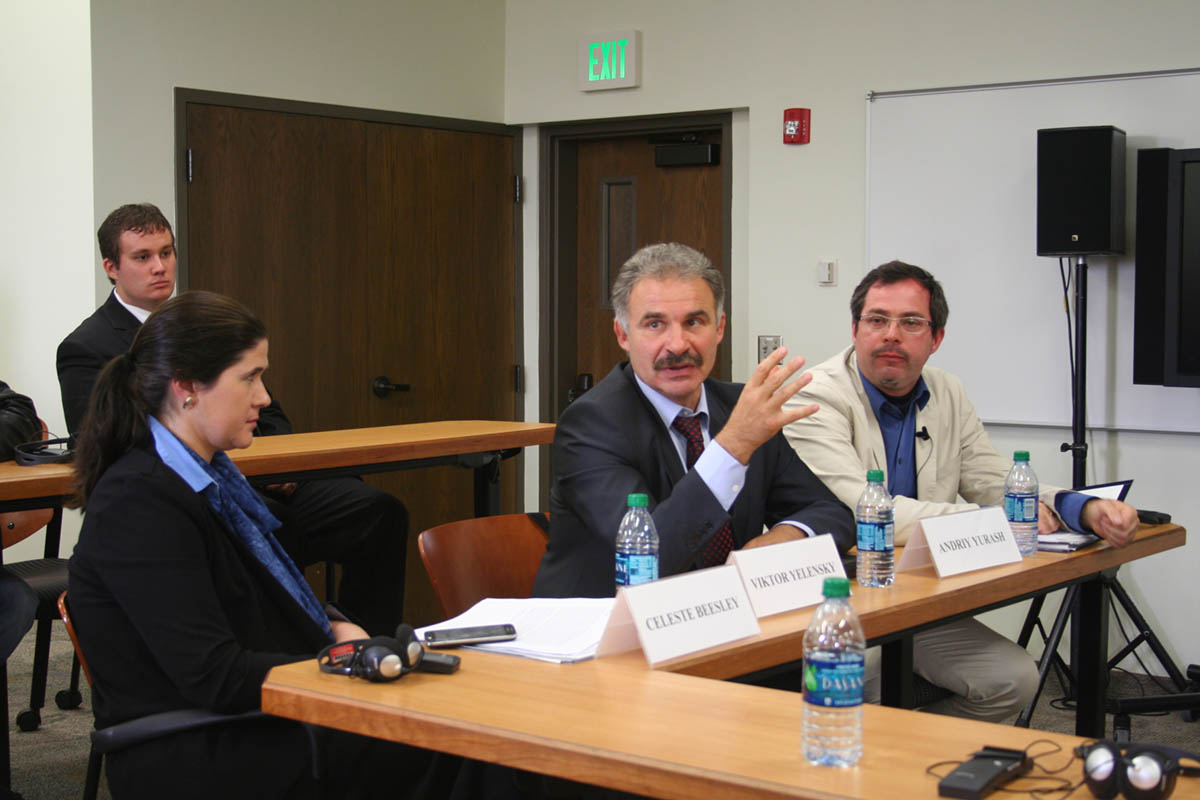
Reported by Blythe Shupe
Moderated by Celeste Beesley, Assistant Professor in the Department of Political Science at Brigham Young University, the panelists for this session were Viktor Yelensky, Head of the Subcommittee for Freedom of Conscience, Parliament of Ukraine; and Andriy Yurash, Director, Department for Religious Affairs and Nationalities, Ministry of Culture, Ukraine.
Viktor Yelensky, Head of the Subcommittee for Freedom of Conscience, Parliament of Ukraine, opened the session. He provided statistics on various post-Communist countries showing the government involvement in religion in those states. According to Mr. Yelensky, “Pluralism is the main distinguishing feature of the Ukrainian religious landscape…
Symposium 2015: Judicial Perspectives – Helen Moronkeji Ogunwumiju
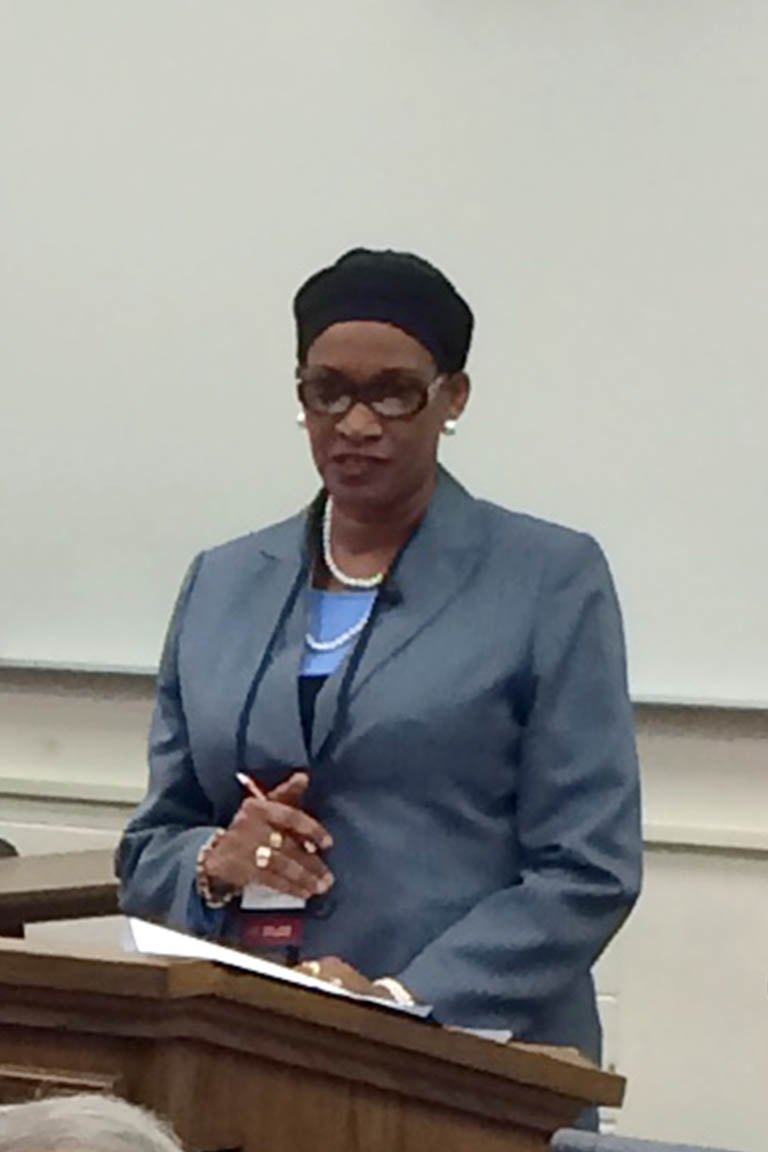
Reported by Abby McKeon
This session was moderated by Roger Hunt, Judge, United States District Court for the District of Nevada, and featured Helen Moronkeji Ogunwumiju, Justice, Nigeria Court of Appeals.
Justice Helen Moronkeji Ogunwumiju began by stating that religion has always been a part of law. She comes from Nigeria: a multilingual and multiracial nation where the law embodies the morals and values of society. The Constitution explicitly provides for freedom of religion and expression, and it prohibits the country from adopting any official religion. While Nigeria has strived to weave laws of the land with religious organizations, the decrease of overt religious protection since 1999 has led to instances of unrest.
Unfortunately, differing religious groups in the northern and southern regions…
Symposium 2015: Religion and Social Stability
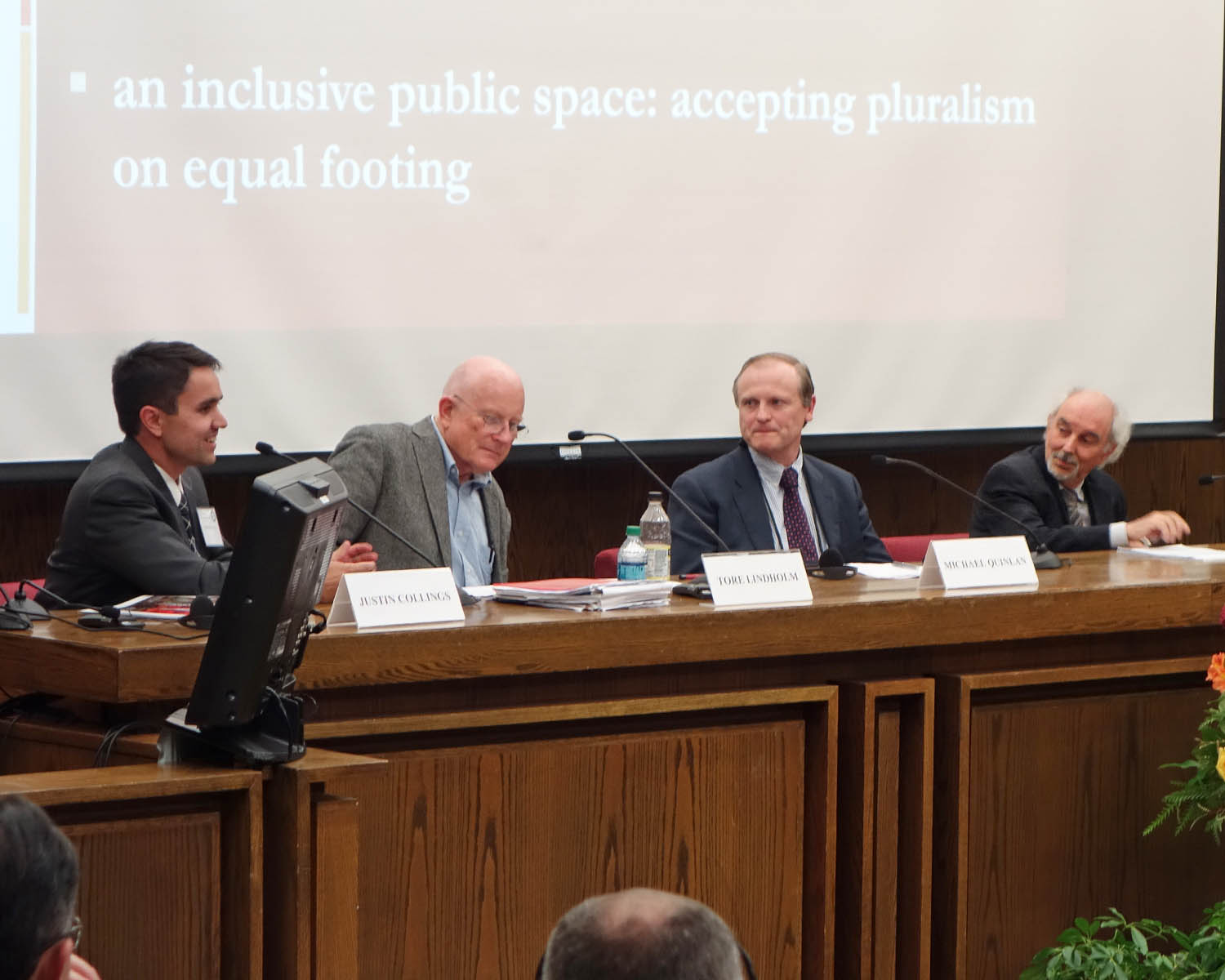
Reported by Jarvis Yau
This session was moderated by Professor Justin Collings of BYU Law School. The presenters include Tore Lindholm, Professor Emeritus, Norwegian Center for Human Rights, Faculty of Law, University of Oslo, Norway; Michael Quinlan, the Dean, School of Law Sydney, University of Notre Dame Australia; and Silvio Ferrari, Professor of Canon Law, University of Milan, Italy.
Professor Lindholm was the first to speak. He took the opportunity to introduce part of his paper regarding social stability and equal protection of conscience. He argued that there are special rules made…
Symposium 2015: Latin America – Universities and NGOs
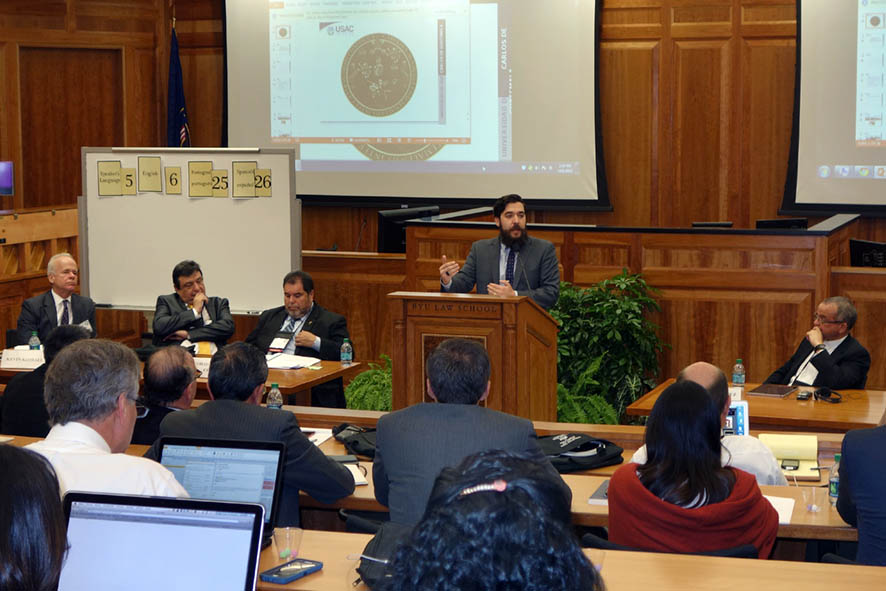
Reported by Raquel Flores
The Latin American Universities and NGOs Breakout Session held on Tuesday, October 6, 2015 was moderated by Kevin Kimball, International Fellow of the International Center for Law and Religion Studies, and included Carlos Alvarado Cerezo, Ramón de la Cruz Baldera, and Tomás Henriquez Carrera as speakers.
Carlos Alvarado Cerezo, Rector of the University of San Carlos of Guatemala, discussed what his University has done to promote religious liberty in Guatemala. Because the University can present legal initiatives to the Legislature, it has been directly involved in the legislative process. In addition, the University has helped create, and now participates in, two important civic groups: The Group of Four–which is comprised…
Symposium 2015: Indonesia and Pacific Islands
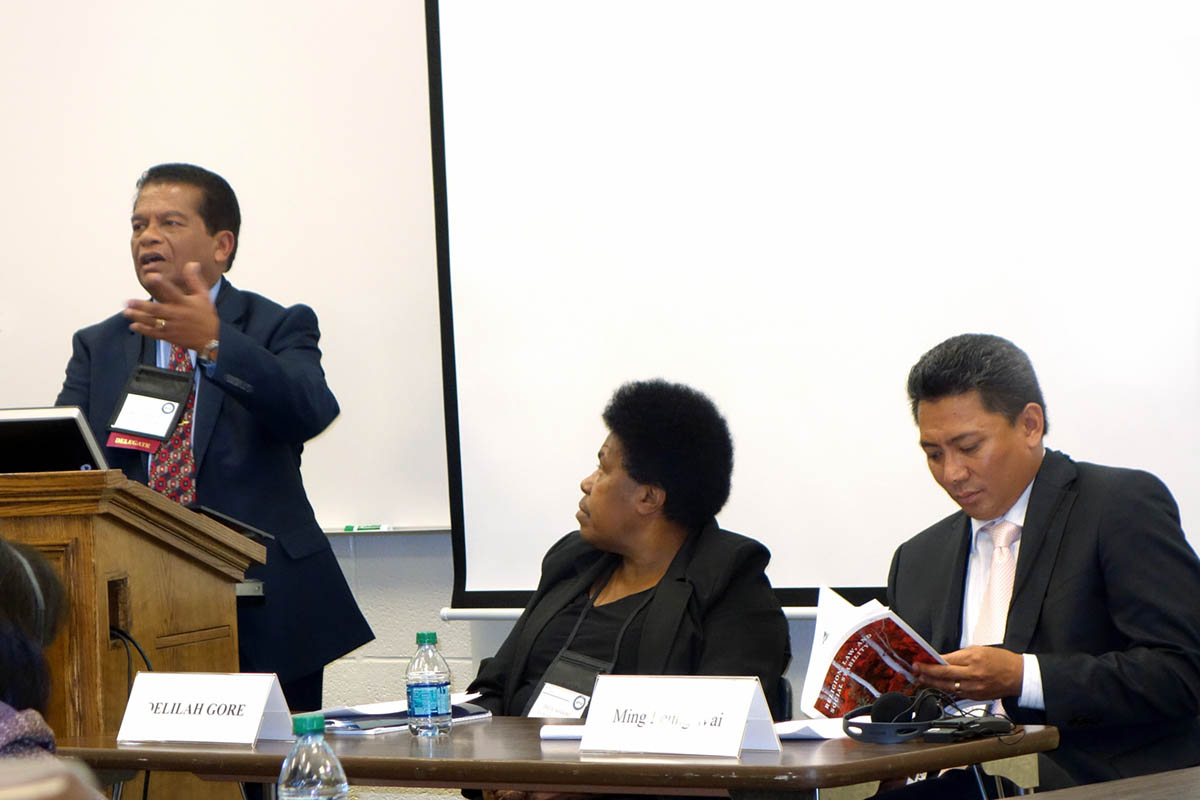
Reported by Abby McKeon
This session was moderated by Chad Emmett, Associate professor, Department of Geography at Brigham Young University.
The session began with Delilah Gore, Minister for Religion, Youth and Community Development, National Parliament of Papua New Guinea, presenting on Papua New Guinea and the status of religious freedom. Papua New Guinea is a Christian island nation with a constitution that provides for freedom of religion. The predominant religion is Roman Catholicism. Public schools offer religious classes to students that are typically chosen by the parents. Ms. Gore highlighted the need for the government to partner with churches and other religiously affiliated programs in order to foster respect and be able to address conflicts…
Symposium 2015: Russia
The session on Russia was moderated by N. Anthony Brown, Associate Professor, Department of Germanic and Slavic Languages, Brigham Young University. Panelists were Arkady Dubnov, Analyst for the Russian Council for Foreign and Defense Policy, Moscow Carnegie Center; and Lev Simkin, Professor of Law at Moscow State University.
Symposium 2015: Judicial Perspectives – Ahmed M. Ebrahim, Justice (Ret.), Supreme Court of Swaziland and the Supreme Court of Zimbabwe
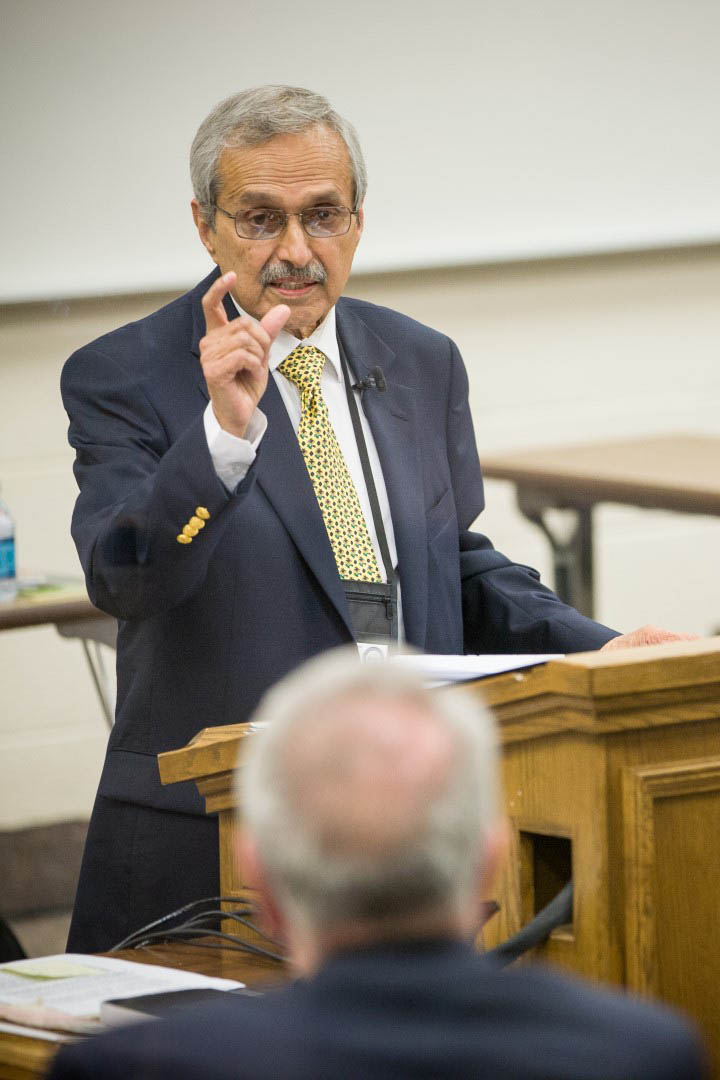
Reported by Joe Hepworth
Ahmed M. Ebrahim, Justice (Ret.), Supreme Court of Swaziland and the Supreme Court of Zimbabwe, provided an overview of his remarkable career spanning several decades.
Justice Ebrahim highly recommended a 1959 speech from the Attorney General of India. The speech, he observed, includes “pearls of wisdom” that will help students get to where he is today. He also recommended that those new to Islam read a book written by an eminent professor, Malcolm Clark, Islam for Dummies, and the translation of the Qur’an by Sir Abdullah Yusuf Ali.
When Justice Ebrahim was young, Zimbabwe vigorously practiced a form of racial segregation similar to South Africa’s apartheid, “although they didn’t call it that.” Justice Ebrahim was not allowed to…